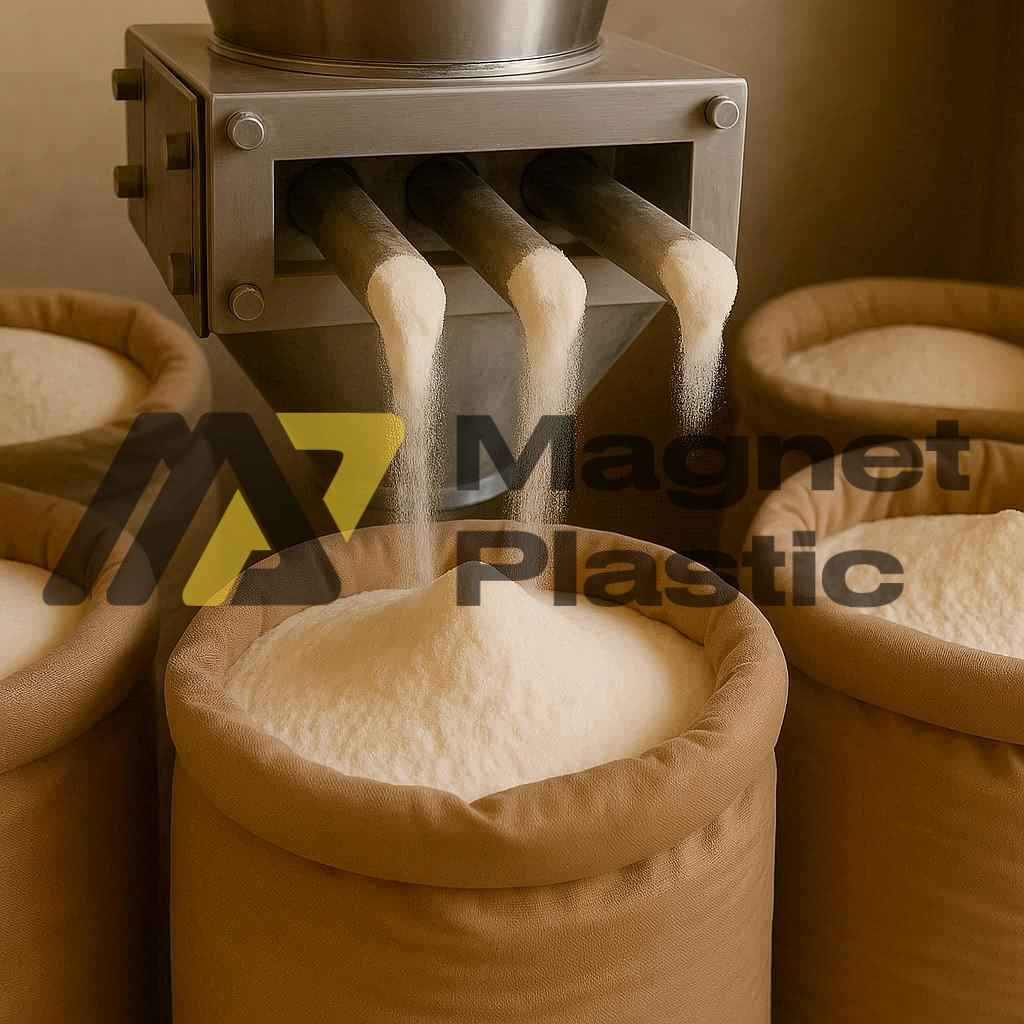Magnets in Flour and Starch Processing: The Importance of Magnetic Control
Metal contamination: a hidden risk in production
During the harvesting of potatoes, grains, wheat, barley, and other crops, thick metal pieces—originating from soil or harvesting machinery—often end up mixed with the harvested product. In later processing stages, such as milling or starch extraction, small iron or steel particles can also appear as a result of equipment wear. These ferrous contaminants can cause severe damage to machinery, increase maintenance costs, and, in the worst cases, remain in the final product—posing health risks to consumers, triggering costly recalls, and damaging a company’s reputation.
The essential role of magnets in the food industry
Magnetic systems play a crucial role in the production of flour and starch. They prevent damage in milling plants, reduce production downtime, and ensure product purity. The main magnetic solutions used include magnetic bars, filters, grids, and rotary separators, which efficiently remove both large metal fragments and fine iron particles.
Protection from harvest to storage
During the harvesting of potatoes, corn, cassava, rice, and other crops used for flour or starch production, metallic impurities must be removed as early as possible. High-intensity magnetic plates, suspended above conveyor belts, remove bolts, nuts, wire, and other large metal pieces. This initial step improves product quality and protects processing machinery in later stages.
In storage silos, magnetic bars or grids are installed in free-fall channels to continuously separate ferrous contaminants before processing.
Magnetic applications across production lines
In potato starch production, magnetic filters installed in pressurized pipelines remove metal particles generated during grating, preventing iron from contaminating the starch.
In cassava or tapioca flour processing, the mechanical peeling and pressing stages can release metal fragments; therefore, magnetic grids are placed at the start of the line, while rotary drum separators are used at the end.
In rice starch production, magnetic filters along pressurized lines capture iron particles during soaking and drying, ensuring a clean and uniform final product.
In corn processing, where both glucose and starch are produced, centrifugation requires absolute purity. Rotary magnetic grids with high-intensity magnetic bars filter fine powders and remove any remaining metallic contamination from the product flow.
Safety, efficiency, and regulatory compliance
Installing magnetic bars in free-fall powder hoppers—with manual or automatic cleaning systems—reduces delays and increases production efficiency.
Even in the pharmaceutical industry, where starch is used as an additive or carrier for active ingredients, magnetic separators are vital for removing micro-particles of iron and stainless steel (AISI 304 or 316L), ensuring safe and contaminant-free products.
Magnetplastic: reliable and durable magnetic solutions
Magnetplastic is more than just a manufacturer of magnetic systems — it is a trusted technical partner. Its team of experts provides guidance on the optimal placement and selection of magnetic filters and separators. With durable, efficient, and compliant magnetic solutions, Magnetplastic protects products, optimizes operations, and ensures full compliance with industry standards.
